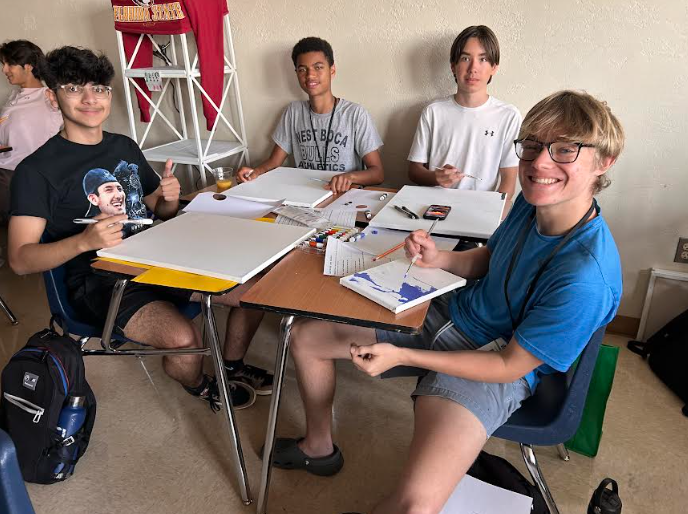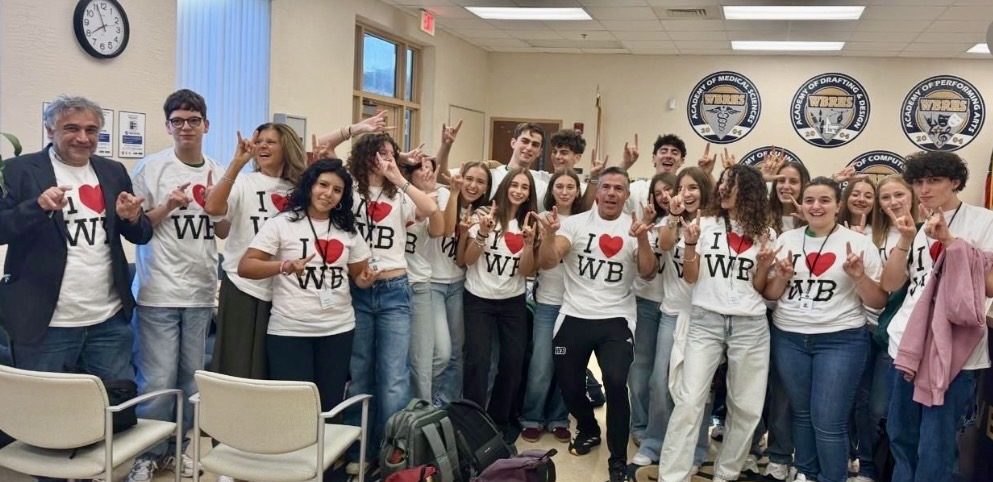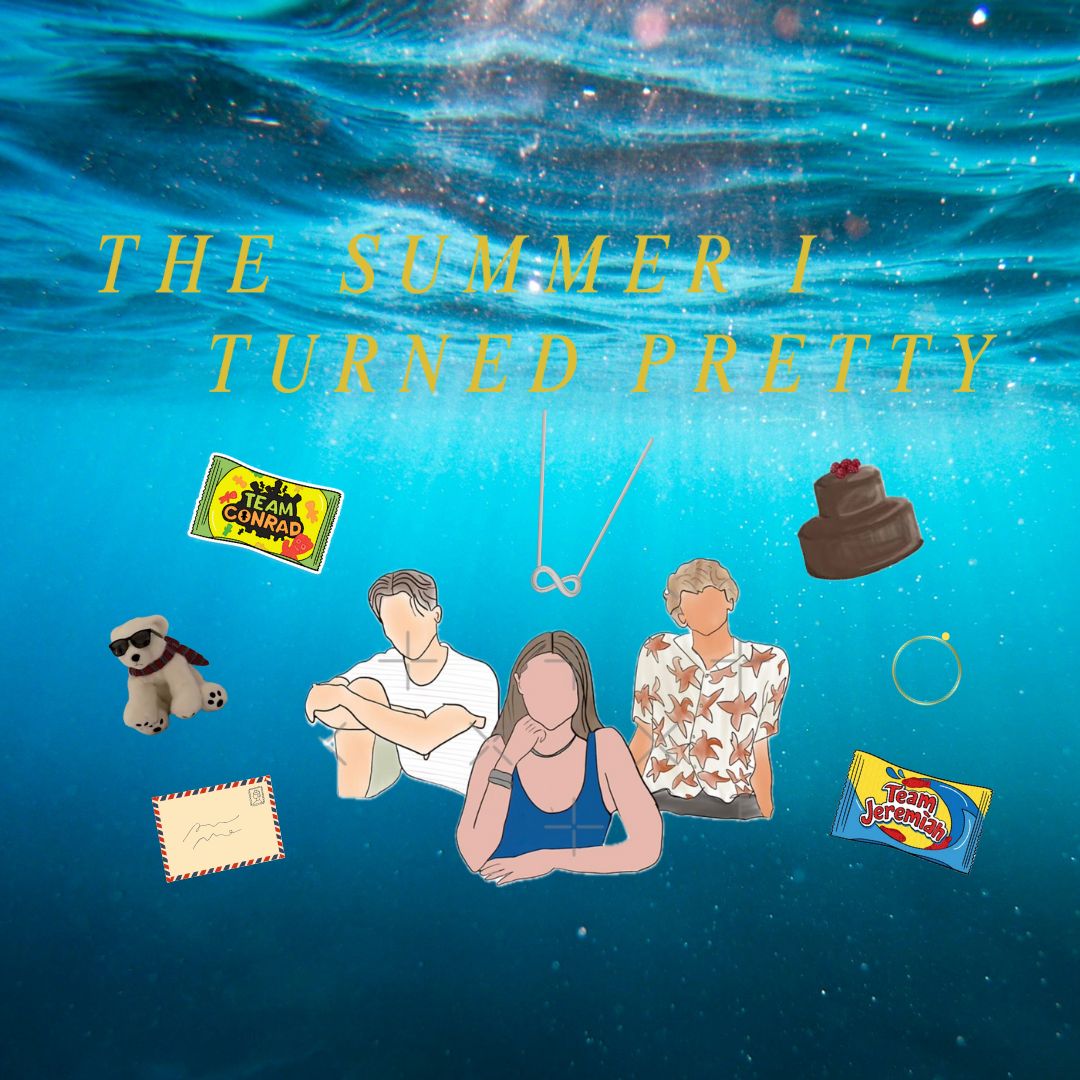Students React to District Mental Health Program

Many West Boca High School students reacted to Suite 360 mental health programs that are required to be completed by all Florida students.
March 5, 2021
Suite360: Mental Health & Prevention is a “comprehensive mental health education program, providing students in grades 6-12 with information about mental health care as well as what to do if they or someone they care about experiences symptoms of a mental health problem.” It covers many topics from avoiding stigma, suicide prevention, child trafficking, and also includes information on many mental disorders like depression, anxiety, bipolar disorder, etc. Students learn how to prevent mental health disorders from developing, how to stay safe online, what resources are available for students that may be struggling with a mental disorder, how to avoid child trafficking, and how to look out for signs of suicidal thoughts.
Originally, these programs were meant to be done in the classroom with student discussions being held, and classes doing them collaboratively. However, because of the pandemic, many students are staying home and going to school virtually. But, these programs are still required by Florida law; thus, the district has decided to change these programs around so students will have access to them and can complete it on their own. Because of this change, students had to individually go through all the lessons by themselves during class time. Now that they have been completed for the year of 2020-2021, I wanted to find out how these changes affected the students in West Boca High School (WBHS), so I asked the student body for their input, thoughts, and feelings about the mental health programs.
180 students* responded to a survey where it was asked if these mental health programs helped them overcome stigma, know more about mental illnesses, etc. 149 students said yes while 31 students said no. Some students who did like the programs said, “This [the mental health programs] helps people to understand the risks of certain topics that our parents won’t talk to us about that deeply or they won’t even though those topics because they don’t feel like they are important even though they really are. I think they are really helpful for the understanding of critical topics such as drugs, alcohol, human trafficking, depression, suicide, etc,” However, another student who specified why they didn’t like the programs and why it didn’t help them said, “I have been reading chapters of mental health issues since elementary school. Perhaps all of this [mental health programs] just shouldn’t be mandatory? Or no longer mandatory as a senior…If we are old enough to choose to be in school everyday, perhaps we’re old enough to know where we stand in regards to our mental health?” Another student also stated, “Personally I do not like them, because they preach having a good mindset while putting us in an environment where we are given hours upon hours of homework a night, more stress than a child should ever have, and they don’t seem to care. It’s clear they don’t care about our mental health when they make us click through slides about depression while we sit alone without the emotional support we need. It’s funny that almost all my teachers admit that they know school is way harder now than when they went to school. They recognize the stress, the homework, the high standards, but they do absolutely nothing to make it easier on the students. If Florida really cared about our mental health it would recognize that school is the main source of it [the issues] and do what they can to make it less stressful for students.” In addition, a student claimed, “I feel like a lot of my peers don’t take it [the mental health programs] seriously and it isn’t engaging enough to draw their attention. My teachers tend to treat it like a nuisance that disrupts class. So many times people just speed through it without a care. Particularly last year, it was really harmful to students with mental health issues because, especially with the topic of suicide, me, as well as some others in my class, were very triggered by the blunt depiction of suicide and we all started crying while we watched as the rest of our peers were fine. It felt like we were out-ed within the classroom. A lot of us had to step out of class to recover and weren’t stable for the rest of the day.”
Many students also think that these programs are important, but they find that it is a little redundant rather than informative. For example, one student said, “Obviously my experience is different from others, but mental illness has always been a prevalent factor in my group of friends so I found that these lessons didn’t actually help me understand mental health conditions any better due to it being reduntant. However, I do see how it could be beneficial to others who maybe never confronted mental health to such a degree.” A different student added, “I really liked the idea of this but I feel like it is not benefitting the people it should. Most people I know don’t pay attention to it even if it might benefit them.”
When asked how they could make these programs better, a great number of students said to make them more engaging for students to pay attention. Also, many students mentioned making these programs optional for seniors. Particularly, one student added, “I would make the programs optional for seniors, and maybe make adolescent programs more [inclusive]…I believe that if this is going to be introduced as something to learn, both aspects [mental health and regular school curriculum] should be equally taught to balance each other out. To be fair, coping and interacting with individuals dealing with mental health issues is taught, but as a program these behavioral and thought processes, how they affect each other, balancing knowledge one would need to understand a broader scope of these diagnoses and how to manage even day-to-day problems, are sorely lacking.”
Another student gave the suggestion for these mental health programs to not generalize certain disorders and their symptoms such as Autism Spectrum Disorder, anxiety, etc. Also, some students have mentioned that these programs have been phrased and taught in a way that made it seem like it was generalizing that everyone had some form of a mental illness through general symptoms. For instance, one student said, “I think these lessons mixed mental illness and simple stress that comes from being a teenager in high school together a lot, and might have given a lot of ‘false diagnoses.’” Many students also suggested incorporating some real life high school cases of kids going through stress mentally and showing how they overcame it. In addition, a student advised, “I think that the actual lessons and videos should include specific trigger warnings that warn viewers of its content, instead of teachers just including the trigger warnings on the Google Classroom posts that had the assignments for Suite 360. Also graphic images such as wrists that are cut are extreme and triggering.” Other students said to try making these programs more asynchronous or trying to get it to be more interactive and discussion based: “[there could be] panels and events to present these mental health topics rather than random videos on it.”
Overall, while these programs have helped a number of students in WBHS, there is still room for improvement and engagement. Many students have said that they want more interaction with the students as they believe that would be beneficial, or have some parts of the lessons be completed as a group. Even a student mentioned, “I think if the teachers talked about it with us and the class just had one big meaningful conversation about it, it would be more helpful than clicking the next button over and over again.” Suite 360 could also try to include “real-life experiences from teenagers that deal with severe and mild mental health issues,” as a student said, to help better understand mental illness and the topics discussed in these programs.
**If you or anyone you know needs help, please contact the suicide hotline at 1-800-273-8255
* These are all real students from West Boca High School but no names are mentioned as a respect to the students’ privacy.










































